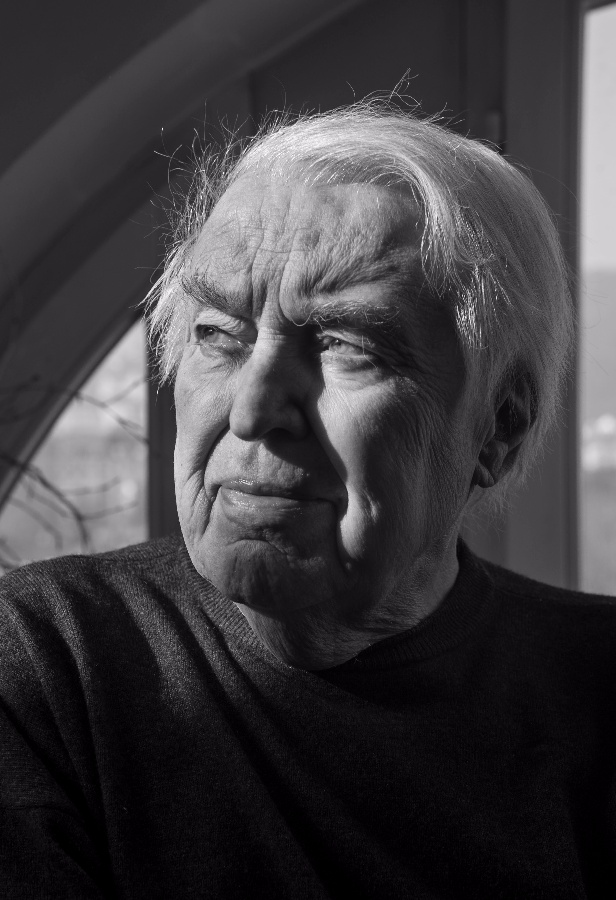Pavel KOHOUT (*1928)
- Read the story (PDF, 0 kB)

Merry companion of the small community
No other Czech man of letters is capable of performing that role with such verve as Pavel Kohout. He has always been a player who loved the limelight. However, he has also been a completely reliable partner in risky games, a songbird of revolution and glorifier of executioners, an uncommonly dexterous literary artist, a reformer and Prague Spring tribune, a man of the world, a showman and master of Europe’s stages, an outcast from society genuinely harshly persecuted by the regime, a merry companion of the small community of “the power of the powerless”, a human rights advocate and a fanatic for work, precision and reliability, the author of thick novels and tens of plays, a bon vivant, epicurean and ascetic, a model husband of three marriages, a reformed father of three children, a democrat and renowned European writer, a modest man who doesn’t push himself forward. In brief, the phenomenal Pavel Kohout.
The naive and lovers of uncompromising judgements may well be offended by him. But others will see in him the extreme but essentially trustworthy and authentically led form of one extraordinary Czech life story in politics, art – and himself.
It was that way from the very beginning when everything took place under the influence of an absolute surrender to Communist ideology. At just 20, he was a songbird of youth, waving to Stalin on Red Square and, when he died, considering ending his own life too. And it was like that when he gradually broke away from Communist ideology, finally overcoming it through acts that were commendable or even genuinely brave. In the second half of the 1970s he, alongside Václav Havel, became the most closely monitored dissident. In the end, they had to literally force him out of Czechoslovakia.
He has always been criticised for never subjecting himself to genuine reflection, for never asking himself questions he didn’t have ready answers for because he was completely taken with his new role in life. He constantly repeated that it had been “a mistake of the intellect, not morality. The whole of the rest of my life has been devoted to righting that contradiction. People have the right to make a mistake – what’s important is identifying and not repeating it.”
For Kohout, the public and private were intertwined and reflected one another. Frequently in a theatrical manner, but also fully and without affectation. In that at least his opponents could claim to be right. This is captured in a private letter written by Milan Kundera in 1979 in which Kohout’s literary opposite praises his peer with the words: “… over the course of time, I became aware of the consequentiality contained in your play, the sincerity and forthrightness of that theatricality, its genuine virtuosity, and in recent years the risk increasingly contained within it and finally of a kind of genuine Czech genius of fun that has been in everything you have done and in that fun a sense of the precision that a tightrope walker must have while crossing a tightrope between skyscrapers.”
His early poems and outlook will no doubt continue to fascinate for a long time and new generations will grow up and discover them with a sense of boundless awe. At the same time it is true that though Kohout’s early 1950s output is rather incredible intellectually, it is not bloodthirsty or militant. It is exultant, melodious and lyrical and despite the bizarreness of the subject matter its inspiration and talent cannot be denied.
A large part of his magic lies in his ability to remain sovereign and the master of a production even on the spot. He is forever fully in “reality” and “on stage” at the same time. He is always on top of situations, which he is able – in the positive sense of the word – to make the most of and control. Material surrenders to him easily, as if flowing toward him and taking shape of its own volition, turning into ideas and slogans for him. He thought up the best-known slogan after August 1968 – “We’re with you, be with us” – as well as the name Charter 77. In The Czech Dream Book, Ludvík Vaculík wrote of Kohout with understanding and collegiality: “Due to certain aspects of his personality, the degree of his activities at a young age exceeded the degree of his knowledge. He smoothly removed the clash of those elements and therefore constantly renewed and reinforced his identity.”
That is Pavel Kohout, a Czech phenomenon.
Text by Jiří Peňáš